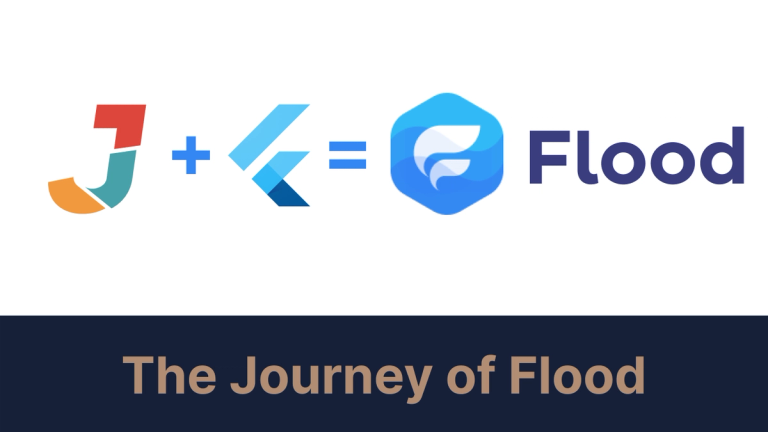The Journey of Flood: From Freelance Tool to Open-Source Flutter Framework
Lessons Learned in Creating, Validating, and Sharing a Developer Tool with the Community
Jake Boychenko
Published April 25, 2024

The Inspiration Behind FloodFlood
As a freelance developer, I've always been passionate about finding ways to streamline my workflow and create high-quality apps efficiently. This drive led me to develop Flood, a Flutter framework that encapsulates common functionalities I encountered across my projects. Little did I know that this personal tool would evolve into an open-source project embraced by the Flutter community.
The initial spark for Flood came from my freelancing experience, where I noticed recurring patterns and requirements in my apps. By abstracting these commonalities into a framework, I could prototype, architect, develop, and release apps much faster. The benefits were clear, but I wondered if other developers could also find value in this tool.
Validating the Idea
To validate the idea, I reached out to the Flutter community on Reddit and LinkedIn, directing them to flooddev.com, a website showcasing Flood's capabilities. The response was overwhelmingly positive, with many developers expressing interest in trying out Flood in their own projects. The newsletter sign-up CTA on the website also garnered a significant number of subscribers within just a few days, further confirming the community's enthusiasm.
Preparing Flood for Public Use
Encouraged by the positive feedback, I set out to polish Flood for public use. This involved refactoring the codebase, ensuring consistency in module naming, and integrating with tools like Mason to simplify project setup. The goal was to create a seamless and intuitive experience for developers adopting Flood.
To support the framework, I created a comprehensive documentation site (docs.flooddev.com) that delved into each module, providing overviews and code examples. Additionally, I produced a tutorial video demonstrating how to build a Todo app using Flood, showcasing features like authentication, Firebase integration, local environment emulation, app icon generation, and CRUD operations.
Pivoting to Open-Source
As I prepared to release Flood, I sought input from the community regarding pricing and feature preferences. The feedback indicated a willingness to pay for custom templates and commercial licensing. However, when I introduced a paid closed-beta, I faced unexpected backlash from the Reddit community.
This experience taught me a valuable lesson about the importance of open-source in the developer community. Listening to the feedback, I pivoted and released Flood as a free, open-source project. The response was incredible, with the framework receiving recognition in Flutter newsletters and sparking discussions on Twitter and Reddit.
Lessons Learned and Growth
Looking back, the journey of creating and sharing Flood has been transformative. It has deepened my appreciation for the work of other open-source projects and highlighted the significance of community feedback in shaping the direction of a tool. The experience also allowed me to showcase my skills through the development of the marketing site, documentation, and tutorial video.
Open-sourcing Flood has not only benefited the Flutter community but has also opened up new opportunities for me. The authority and visibility gained through this project have led to freelance inquiries and the interest of recruiters who can now view the impressive work reflected in the Flood repository.
Conclusion
In the end, the journey of Flood has been one of learning, growth, and community engagement. It has taught me the power of listening, adapting, and giving back to the developer community. As I continue to evolve as a developer and entrepreneur, I will carry these lessons with me, striving to create tools that empower others and foster collaboration in the ever-growing world of open-source software.